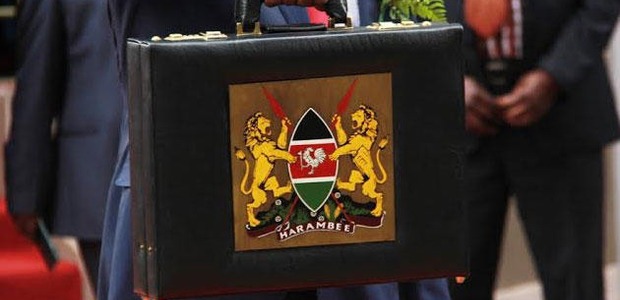advertisement
#BudgetKE2016: Government of Kenya allocates KES 6.1 billion on ICT Projects
This was said by the Cabinet Secretary National Treasury, Henry Rotich while presenting the 2016/2017 budget at the Parliament Chambers….

This was said by the Cabinet Secretary National Treasury, Henry Rotich while presenting the 2016/2017 budget at the Parliament Chambers. The 2016/2017 budget is the fourth Budget Statement under the Administration of His Excellency President Uhuru Kenyatta. The Kshs. 2.3 trillion worth budget was themed, “Consolidating Gains for a Prosperous Kenya.”
“Kenya identified Konza Techno City as one of the national flagship projects to position Kenya as a sustainable world class ICT Hub in the region. In this subsector, I am proposing to allocate a total of KSh 6.1 billion for Single Window Support Project, Research Development Fund, Roll out of IFMIS, Development at Konza Technopolis, Digital Migration (KBC), and for the Presidential Digital Talent Programme,” said Mr. Rotich.
He also added that access to Information Communication and Technology (ICT) is critical for the country’s productivity and competitiveness in a knowledge based economy adding that the government is therefore committed to investing resources as well as providing a conducive environment for the ICT sector to thrive. “This will not only improve service delivery but also cut transaction costs and safeguard Government revenue,“ he added.
advertisement
In the last financial year, much progress has been made including digitalizing Land transaction services, e-registry, business registration, motor vehicle and driver’s license services and services under the registration of persons, including passport, work permits and visa application.
Another major highlight from the 2016/2017 was On Telkom, where CS Rotich reported that significant progress has been made in which Orange East Africa will sell its shares to a strategic investor. Through this transaction, the Government of Kenya will increase its shareholding from the current 30% to 40%.
“We expect the new investors to turn around the fortunes of the company so that it can be a sustainable business capable of competing effectively in the telecommunications sector, “ added the CS.
advertisement
Mr. Rotich also added that all payments to Government were moving onto the digital platform to ensure that all payments to Government are made electronically to significantly reduce administrative costs, minimize leakages and expand access to payment points.
Another major highlight for the sector was that over 1.7 million Kenyans have registered on the eCitizen payment platform, where they are able to access 115 services from different government agencies including some from County Governments. To date the platform has processed over 2.4 million application and collected KSh 4.2 billion in Government revenue.
The portal is set to have additional services on board including assessment and payment of stamp duty, application for Identity Cards, and inspection of Company files. The CS also added that they had instituted an audit whose finding will be used to review the payments architecture the system is robust and not subject to manipulation and will work closely with the ICT Ministry on this.
advertisement
CS Rotich also pointed out that as at January 2016, the Government had 40 Huduma Centres across the country and the target is that each of the 47 counties in the country will have a Huduma centre by the end of the financial year 2016/17. This one-stop shop service delivery programme provides channels for different integrated government services to the public including the physical centres, online portal , mobile phone services to citizens and a unified and integrated payment gateway (Huduma card) to facilitate payment for government services.
“ All these developments and innovations, Mr. Speaker, go a long way in reducing transaction costs to the Mwananchi, in addition to improving government revenue collection by sealing loopholes,” he added.
On the implementation of the Kenya National Electronic Single Window System (the Kenya Tradenet System), the CS said that the implementation is on course and 17 modules are now operational while the remaining 3 will be completed in the next six months.
“We are beginning to see the benefits of this investment with the time taken to process documents declining by 50 percent, while the number of times a client needs to visit a Government agency coming down to zero. At the same time, there is increased uptake by government agencies processing their permits through the system. This has therefore contributed to enhanced efficiency, transparency, accountability, governance and competitiveness while at the same time improving revenue collection,” said Mr. Rotich.
The government has also put in place initiatives such as the presidential digital talent initiative, digital literacy programme, Kenya Transparency and Communication Infrastructure programme, County Connectivity Project, Enterprise Kenya, Digital migration and NOFBI phase II that will improve the delivery of Government services.